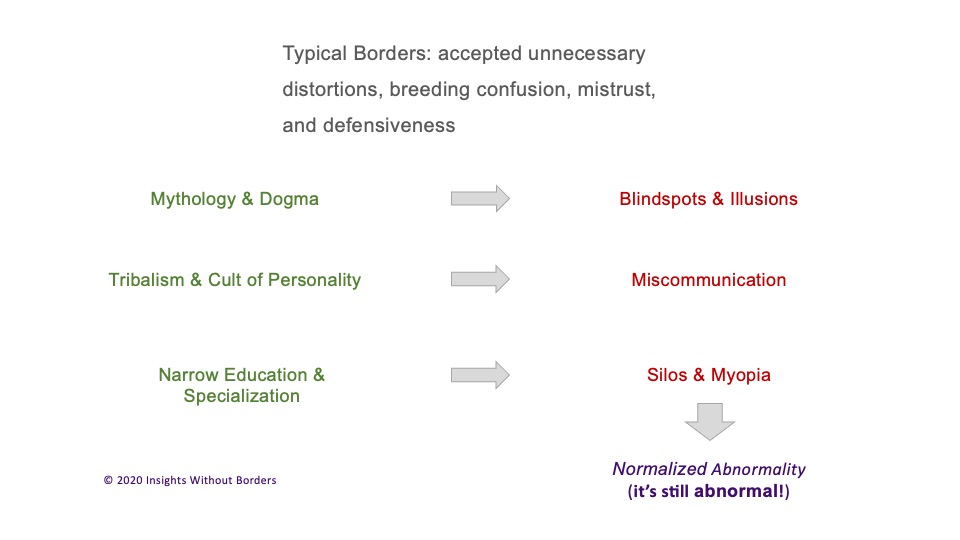“To confront a person with their own shadow is to show them their own light.” —Carl Jung
In years of working with businesses or organizations—it never ceases to amaze me how often they spend an incredible amount of money, time, and applying mindsets.
To heighten energy, sharpen vision, and inspire change calls-to-action on preordained conclusions.
Likewise, they align with the appropriate (politically correct) ‘solutions’ or feel they should be—instead of remaining solution impartial.
Regrettably, as I have seen all too often in my business consulting work, this behavior, mindshare, and perception is a prime example of confirmation bias along with other ones as well.
Which creates typical borders: accepted as unnecessary distortions, breeding confusion, mistrust, and defensiveness.

Depicted in this figure of the visual representation of how the business or organizational wisdom lies neither in fixity nor change—and sustained rigid mindsets and vested interests—but in the dialectic between the two: fixity and flux.
Turf Conscious Managers and Friendly Fire
Leadership team alignments, as do other ones like in high-performance teams, often stay within their respective world.
Human-centric (social interactions)—communication or direct involvement with someone or something often centers on cognitive biases, tribalism, turf wars, egotistical mindsets, and territorial games or sport.
A form of business play or sport—in which activities focus on protective behaviors to preserve leaders or managers organizational ‘territory.’
And the power or resources they have that they are not willing to share with others.
Where “a turf conscious manager can grind genius into gruel.”
Where creative spirits, motivated enthusiasts, and innovative drivers.
Annette Simmons, says, in her book, Territorial Games: understanding and ending turf wars at work.
These people become casualties of turf wars inside businesses or organizations.
We lose too many valuable resources, she tells us, to the “friendly fire” of corporate turf wars.
Polarizing Climate and Culture
Blind spots and preconscious problems repressed by shadowy symptoms in the ensuing climate or culture complicate organizational functioning.
These blind spots and preconscious problems polarize climate and culture.
And they lead to a cover your ass (CYA) or Trust Your Neighbor but Brand Your Stock mentality.
Treating these illusions, shadowy symptoms, and blind spots as reality erroneously normalizes the abnormal (it’s still abnormal!).
In this prevailing climate and culture—leaders, managers, employees, and workers belong to exclusive groups.
And affirm their membership by beating other groups.
Where the common good means nothing and winning is everything.

